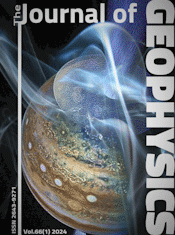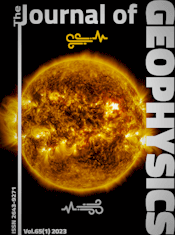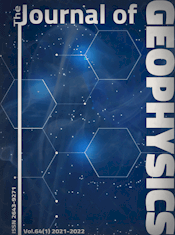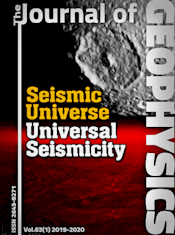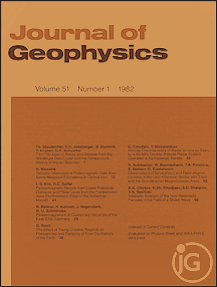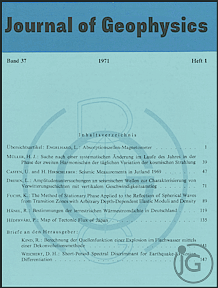Monte Carlo simulation of collisionless shocks showing preferential acceleration of high A/Z particles
Article Sidebar
Published:
Oct 22, 1981
Keywords:
Cosmic rays,
Shock acceleration
Volumes
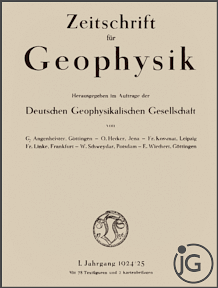
Vols. 1-18 (1924-1944), ISSN 0044-2801
Main Article Content
D.C. Ellison
Laboratory for High Energy Astrophysics, NASA Goddard Space Flight Center, Greenbelt, MD USA
F.C. Jones
Laboratory for High Energy Astrophysics, NASA Goddard Space Flight Center, Greenbelt, MD USA
D. Eichler
Astronomy Program, University of Maryland, USA
Abstract
A collisionless, quasi-parallel shock is simulated using Monte Carlo techniques. In this kinetic approach, scattering of all velocity particles (from thermal to high energy) is assumed to occur such that the mean free path is directly proportional to velocity times the mass to charge ratio and inversely proportional to the plasma density. Within the constraints of this assumption, the shock profile and velocity spectra are obtained showing preferential acceleration of high A/Z particles relative to protons.
 ARK: https://n2t.net/ark:/88439/y033533
ARK: https://n2t.net/ark:/88439/y033533
Permalink: https://geophysicsjournal.com/article/152
Article Details
How to Cite
Ellison, D., Jones, F., & Eichler, D. (1981). Monte Carlo simulation of collisionless shocks showing preferential acceleration of high A/Z particles. Journal of Geophysics, 50(1), 110-113. Retrieved from https://journal.geophysicsjournal.com/JofG/article/view/152
Section
References
Axford, W.I., Leer, E., Skadron, G. (1977) The acceleration of cosmic rays by shock waves. Presented at 15th International Cosmic Ray Conference, Plovidiv, Bulgaria
Bell, A.R. (1978) The acceleration of cosmic rays in shock fronts - I. Monthly Notices R. Astron. Soc. 182:147-156
Blandford, R.D., Ostriker, J.P. (1978) Particle acceleration by astrophysical shocks. Astrophys. J. 221:L29-L32
Cesarsky, C.J. (1981) Mass per charge ratio in hot plasmas and Cosmic ray source composition. Proc. 17th Int. Cosmic Ray Conf., Paris, France, 2:269-272
Cowsik, R. (1980) Comments on stochastic acceleration of cosmic rays. Astrophys. J. 241:1195-1198
Drury, L.O'C., Volk, H.J. (1981) Hydromagnetic shock structure in the presence of cosmic rays. Astrophys. J. 248:344-351
Eichler, D. (1979) Particle acceleration in collisionless shocks: regulated injection and high efficiency. Astrophys. J. 229:419-423
Eichler, D. (1980) Basic inconsistencies in models of interstellar cocmic-ray acceleration. Astrophys. J. 237:809-813
Eichler, D. (1981) Energetic particle spectra in finite shocks: the earth's bow shock. Astrophys. J. 244:711-716
Ellison, D.C. (1981) Monte carlo simulation of charged particles upstream of the earth's bow shock. Geophys. Res. Lett. 9:991-995
Fisk, L.A., Lee, M.A. (1980) Shock acceleration of energetic particles in corotating interaction regions in the solar wind. Astrophys. J. 237:620-626
Forman, M. (1981) First-order Fermi acceleration of the diffuse ion population near the earth's bow shock. Proc. 17th Int. Cosmic Ray Conf., Paris, France, 3:467-470
Fransson, C., Epstein, R.I. (1980) Acceleration and propagation of cosmic rays. Astrophys. J. 242:411-415
Jones, F.C. (1978) The dynamical halo and the variation of cosmic-ray path length with energy. Astrophys. J. 229:747-752
Krymsky, G.F. (1977) Dok. Akad. Nauk. S.S.R. 234:1306
Parker, E.N. (1961) A quasi-linear model of plasma shock structure in a longitudinal magnetic field, J. Nucl. Energy, Part C, 2:146-153
Scholer, M., Ipavich, F.M., Gloecker, G., Hovestadt, D. (1980) Conditions for acceleration of energetic ions ;:o; 30 ke V associated with the earth's bow shock. J. Geophys. Res. 85:4602-4606
Terasawa, T. (1981) Energy spectrum of ions accelerated through Fermi process at the terrestrial bow shock. J. Geophys. Res. 86:7595-7610
Bell, A.R. (1978) The acceleration of cosmic rays in shock fronts - I. Monthly Notices R. Astron. Soc. 182:147-156
Blandford, R.D., Ostriker, J.P. (1978) Particle acceleration by astrophysical shocks. Astrophys. J. 221:L29-L32
Cesarsky, C.J. (1981) Mass per charge ratio in hot plasmas and Cosmic ray source composition. Proc. 17th Int. Cosmic Ray Conf., Paris, France, 2:269-272
Cowsik, R. (1980) Comments on stochastic acceleration of cosmic rays. Astrophys. J. 241:1195-1198
Drury, L.O'C., Volk, H.J. (1981) Hydromagnetic shock structure in the presence of cosmic rays. Astrophys. J. 248:344-351
Eichler, D. (1979) Particle acceleration in collisionless shocks: regulated injection and high efficiency. Astrophys. J. 229:419-423
Eichler, D. (1980) Basic inconsistencies in models of interstellar cocmic-ray acceleration. Astrophys. J. 237:809-813
Eichler, D. (1981) Energetic particle spectra in finite shocks: the earth's bow shock. Astrophys. J. 244:711-716
Ellison, D.C. (1981) Monte carlo simulation of charged particles upstream of the earth's bow shock. Geophys. Res. Lett. 9:991-995
Fisk, L.A., Lee, M.A. (1980) Shock acceleration of energetic particles in corotating interaction regions in the solar wind. Astrophys. J. 237:620-626
Forman, M. (1981) First-order Fermi acceleration of the diffuse ion population near the earth's bow shock. Proc. 17th Int. Cosmic Ray Conf., Paris, France, 3:467-470
Fransson, C., Epstein, R.I. (1980) Acceleration and propagation of cosmic rays. Astrophys. J. 242:411-415
Jones, F.C. (1978) The dynamical halo and the variation of cosmic-ray path length with energy. Astrophys. J. 229:747-752
Krymsky, G.F. (1977) Dok. Akad. Nauk. S.S.R. 234:1306
Parker, E.N. (1961) A quasi-linear model of plasma shock structure in a longitudinal magnetic field, J. Nucl. Energy, Part C, 2:146-153
Scholer, M., Ipavich, F.M., Gloecker, G., Hovestadt, D. (1980) Conditions for acceleration of energetic ions ;:o; 30 ke V associated with the earth's bow shock. J. Geophys. Res. 85:4602-4606
Terasawa, T. (1981) Energy spectrum of ions accelerated through Fermi process at the terrestrial bow shock. J. Geophys. Res. 86:7595-7610



